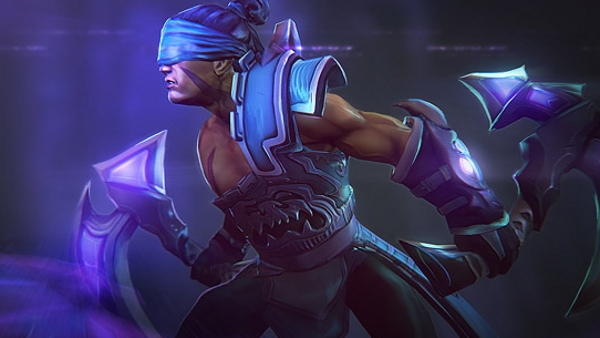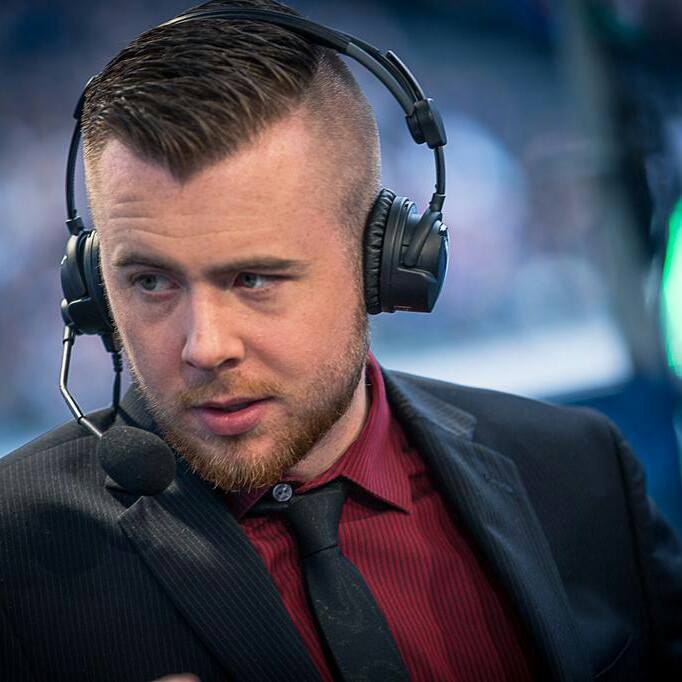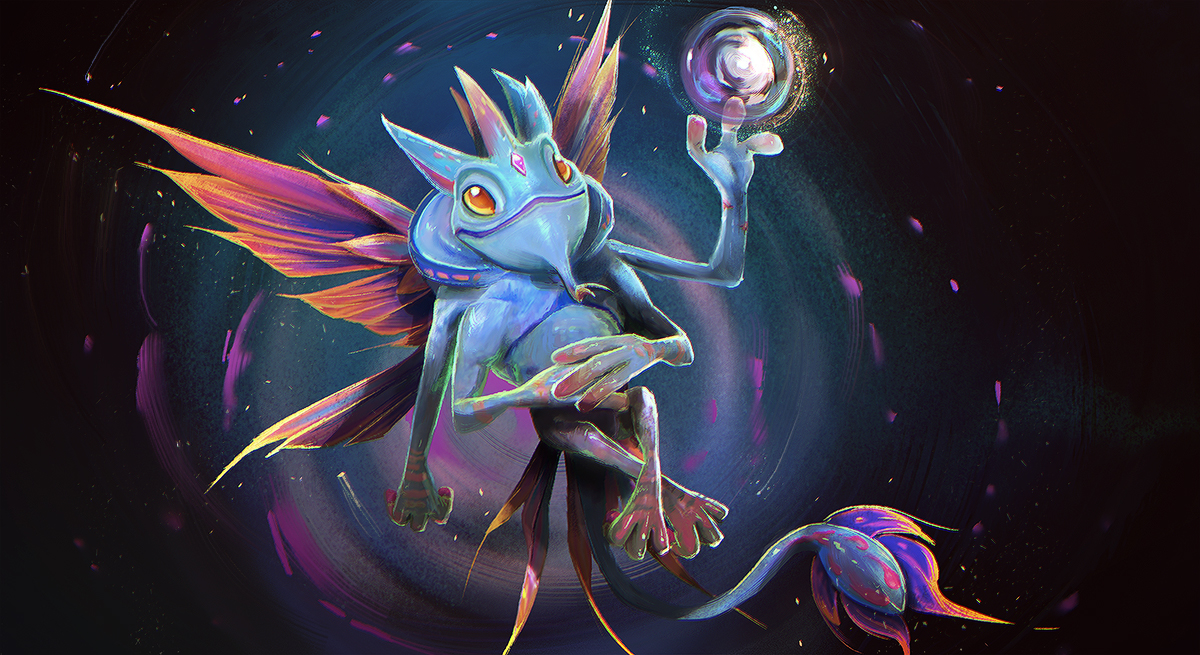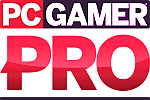Commentator Capitalist on the state of professional Dota 2

On the penultimate day of the Frankfurt Major I sat down with caster Austin ‘Capitalist’ Walsh to talk about the state of Dota 2 casting and analysis, his own perspective on his work, and the stage of the game in general. This has felt like a really strong tournament and a healthy period in general for the game—but there’s always more that can be done.

Capitalist works for JoinDOTA as a commentator and is known for his double act with frequent co-caster Blitz, his hair, his energy levels, and his 6K MMR. You can arrange those things in any order of priority you choose.
PCG: How have you found this event, compared to TI?
Capitalist: Compared to TI there’s a bit less hype, because there’s not as many people coming to the event. Obviously Saturday will be packed, or that’s what I anticipate anyway. Because it’s a very long, drawn-out event and it’s not the biggest event of the year it’s hard for people to come in on weekdays and stuff like that. It hasn’t been as hype, but I think it’s still been really enjoyable. I’m looking forward to having three of these Majors a year because I think it gives me a lot more experience—it gives everyone a lot more experience. Just from a casting perspective it’s always good to do LAN events, but being able to work on the panel has been a lot of growth for me, and for everyone.
I think panel is the Dota scene’s most lacking point right now. We’re not very good at panel compared to other e-sports or other sports in general, and I think that’s something that the Majors will definitely help out on. It’s a very small number of events that get this many panels with this many people. MLG, right, we did a panel with three people—there’s not much to go on, I’d say it’s not that good of an experience compared to a premier tournament like ESL One New York or the Majors.
PCG: Specifically then, what does that experience translate to in terms of your casting?
Capitalist: I think I’ve done a lot more research because I was out of my element when it came to the analyst desk. I did a lot more research going into it. I usually do a lot of research, but this time I was looking for different things. I was looking for anecdotes about the players. I was talking to the players more about how they felt they were going to do, etc. More of the time when I talked to them before it’d be about strategy, how they felt the patch was, stuff like that. General game knowledge that I thought was more applicable. But panel work is like ‘who works in this matchup against this matchup’, where in casting you don’t care so much necessarily.
PCG: It’s already happening.
Keep up to date with the most important stories and the best deals, as picked by the PC Gamer team.
Capitalist: Yeah. The game has started, you don’t have to talk about it during the draft, you cover the action as-is.
PCG: The Dota scene feels pretty analytical, even in e-sports where most people are pretty analytical. Do you think that’s changing? Is it becoming more about stories and anecdotes, as you say?
Capitalist: I think that’s where we should be going. I think that we are too analytical. Obviously, the hardcore nerds that are going to show up on Reddit—they’re always going to be like, ‘we want more analytics, we want our analysts to be able to predict every single draft pick that comes up’ but honestly it doesn’t make for a very entertaining stream. It’s not very good entertainment value. I think that the TI panel was a bit lacklustre in that regard: they put four intensive analysts on a panel and there wasn’t that much to go on.
I mean, Redeye… do you remember 7ckngmad waving the white flag to Pyrion? That was the only schtick that came from it. Redeye was leaning into them and the analysts didn’t know how to react.
PCG: Well, Paul can be brutal.
Capitalist: Paul can be brutal, right, but the banter is supposed to be what creates entertainment value. That’s an easy and cheap way to do so and the analysts weren’t prepared for it. I think that the people like me and say, Purge, we’re decently good at analytics and we need to get better in that regard and still provide energy and banter and that stuff. I need to get better at that. While people like Winter who are incredibly good at analytics need to get better at bringing more energy and more banter to a desk. I think both sides need to come together and be better.
We’re not really good enough to do better, yet, so let’s find another way.
PCG: Both Valve and a whole bunch of other organisations have tried different things to make Dota accessible. This is the least accessible game on the planet. It doesn’t get any less accessible than Dota. I think it was 2GD that said that humour was ultimately the way to achieve that. Would you agree with that?
Capitalist: I would agree with that. The Smash community is amazing, right? A lot of it is because they have these huge personalities and they bring a lot of personality to those casts. Even in an intense match they have these moments… “WOMBO COMBO, HAPPY FEET”—that shows up everywhere, right? Those kinds of moments that the fighting game community creates, they’re what bring in the average viewer. The game is somewhat easier to follow—certainly easier than Dota—but I also think that they do that much better than the Dota community does.
I’d phrase it differently: humour is the easiest, cheapest way to get somebody interested in Dota.
PCG: But cheap’s not necessarily bad, right?
Capitalist: Not at all, not at all. I was talking about this earlier. There was a Mineski vs. OG game, right? Everybody on the panel had OG, including myself, but I changed my prediction to Mineski because I felt it was an easy and cheap way to create a different dynamic on the desk. One person opposing three other people’s thoughts. It’s not that you can’t create interesting dialogue with everybody choosing the same thing, but that’s why I mean ‘easy and cheap’. We’re not really good enough to do better, yet, so let’s find another way.
PCG: Maybe ‘efficient’ is another way of saying ‘cheap’.
Capitalist: Yeah, true.

PCG: But one of the things that’s really positive about the Dota scene at the moment is how international it is. Mineski is a good example, a story that writes itself because nobody expected them to do quite so well. Do you think it’ll stay that way? Is Dota trending towards one-region dominance, more of a mono-narrative like League? I like this plurality at the moment—it feels really strong.
Capitalist: I like it too. The one thing that’s concerning right now is that the Chinese scene has been falling off so much and I don’t know if any of the weaker regions are going to rise up. I’m not sure if North America tier two and three is going to get good enough, I’m not sure if South America and Southeast Asia are going to be good enough to stay in the international scene. That’s concerning for me, because it started with ‘The International’—it’s supposed to be every country, that’s the original idea. I do think that creates the most interesting dialogues and it gives us the widest viewerbase. It’s fun that way. It’s a concern to me that China has been suffering. But I think it’ll keep a pretty strong variance.
I think that China is going to realise that getting new players is going to be important. They can’t just have the old dogs constantly. I think that shows in teams like CDEC, very clearly. EHOME is a great example of relatively newer players, and the strength of them over the more established players.
PCG: Do you think there’s anything structural that needs to change about the scene more broadly? The Majors are one step towards offering bigger payouts more regularly to the top teams, but Dota’s not… Valve are the opposite of Riot in a whole bunch of ways and offering salaries to players seems totally off the table. Would the scene benefit from that kind of stability?
The mid matchup is supposed to be the most mechanically skilled players facing off one-on-one against each other.
Capitalist: No… I’ve had some minor complaints about the way that Valve run things in the Dota scene, but I think they recognise that TI was essentially too big of a tournament, in a way, that it was taking up too much. They also saw the success of the CS:GO Majors. Implementing the Majors into the Dota scene was the best thing they could have done. It’s the best way to feel Valve’s impact. I don’t think we should have a Riot system where Riot is controlling everything, and every broadcast is Riot-sponsored… I don’t think we should go that route. I just want to let this year play out, and see how the Majors go, before I’d suggest anything else.
PCG: From my perspective, this feels like a really good patch for spectators. Do you agree, and which way would you like to see the meta shift?
Capitalist: Okay, one really good thing about this patch is the variety in heroes. We have a pretty good variety in the pool, there’s not too many examples of really overpowered heroes. Doom is the best example of an OP hero right now, and teams will leave him out of the pool entirely sometimes. In that case, balance wise, the game is in a really great place. I do think that there are certain things that 6.86 might be able to bring in, that would make the game a bit more interesting—for example, the mid matchup. The mid matchup is supposed to be the most mechanically skilled players facing off one-on-one against each other. That’s no longer the case. It’s about stacking, dual-laning, rotations etc.
For example, the Puck-Queen of Pain matchups that we used to see in older patches, they were amazingly fun to watch. We don’t see that anymore, because the mid matchup is no longer one on one. It’s no longer as gank-heavy. Your midlaner is often times your carry, so you can’t afford to have someone like Puck who doesn’t scale well. If they do try to make the midlane experience a bit more about that kind of matchup, that’d be more interesting—but that’s a very finicky system to go to, it’s hard to say how implementing stronger midlane play would affect other parts of the game. Are supports going to be garbage-tier again, would they only buy wards—that kind of thing. You never know what’s going to happen.
PCG: Thanks for your time!

PC Gamer Pro is dedicated to esports and competitive gaming. Check back every day for exciting, fun and informative articles about League of Legends, Dota 2, Hearthstone, CS:GO and more. GL HF!
Joining in 2011, Chris made his start with PC Gamer turning beautiful trees into magazines, first as a writer and later as deputy editor. Once PCG's reluctant MMO champion , his discovery of Dota 2 in 2012 led him to much darker, stranger places. In 2015, Chris became the editor of PC Gamer Pro, overseeing our online coverage of competitive gaming and esports. He left in 2017, and can be now found making games and recording the Crate & Crowbar podcast.


